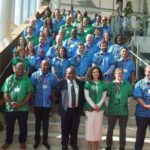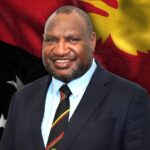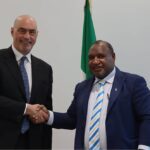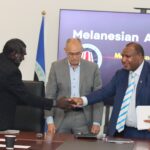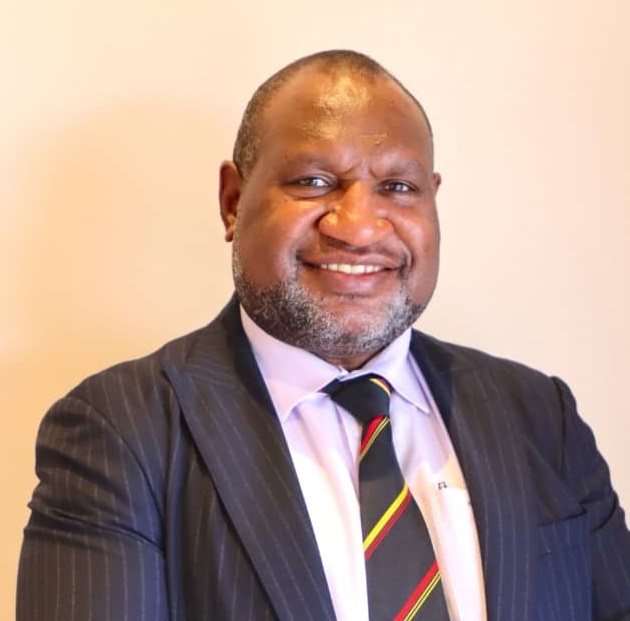Prime Minister Hon. James Marape has praised Western Province Governor Hon. Taboi Awi Yoto, the Provincial Government, District Authorities, and past and present leaders, along with the people of Western Province, for realising the long-awaited USD1.2 billion (K4.8 billion) Agro Forestry Project.
During the official signing ceremony held at Government House today, Prime Minister Marape introduced the integrated Agro Forestry Project, commending the leaders and citizens of Western Province for their commitment to moving this Foreign Direct Investment to completion.
“This is a great moment of collaboration and partnership between our Local Landowners, the Provincial Government, and the National Government. I highly commend Western Governor Hon. Taboi Awi Yoto, the Western Provincial Government, all leaders past and present, and the people of Western Province for staying united in their course to make sure this Project came to fruition. With the help of the Marape-Rosso Government to push it over the crossing line, we have arrived at this moment of its signing. This Project has been a long time coming and today is truly a historical moment,” said Prime Minister Marape.
Governor Yoto echoed this sentiment: “This Project is something that my father and other elders from our society in Western Province dreamed of, and I am glad and lost for words as I am filled with joy, with the fact that we have reached the signing of the Project today. Some people who initiated and had the dream back then have gone before us and are not here today. It is really a historic and joyous achievement.”
“I thank Prime Minister Hon. James Marape for his great support to me and my people of Western Province in ensuring that this Project carries through in our time of leadership in this nation. I also thank the Government Ministers who have assisted in making this dream come true, since the Project idea was initiated in 1997. I thank the Developer who has chosen our country and province to invest in. We will work together and make sure this Project is implemented successfully as agreed today.”
Prime Minister Marape highlighted the transformative impact of the project: “Today I have the absolute pleasure of seeing a USD1.2 billion (K4.8 billion) Agro Forestry Project for remote parts of the midlands of Western Province. Given that the Western Province, having 98,000 square kilometres of land, has often been left behind in the past as far as major development projects are concerned, this Project will see over 300 kilometres of a sealed, all-weather Road that will run from Kiunga to Nomad to the Borders of Gulf Province, and later, we will push this Highway to Kikori (Gulf Province).”
He added, “The logs harvested from this Road Corridor will be processed in-country by 2028 in a base at the deep water area of Strickland River; it will have electricity sourced and agriculture and reforestation done on the harvested area.”
With this 30-year project now officially underway, it is expected to positively impact the North Fly, Middle Fly, and Delta Fly districts, while linking South Fly to Gulf Province via a trunk road. As with all national impact projects under Prime Minister Marape’s Government, the Agro Forestry Project is structured to provide Papua New Guineans with a potential 51 percent interest upon full maturation.
Prime Minister Marape explained the equity distribution, noting that “Papua New Guinea will begin with a 20 percent free carry equity stake in this Project, with 10 percent for the landowners of Western Province, 5 percent to the Western Provincial Government, and 5 percent to the National Government. We have negotiated for room to increase PNG’s stake incrementally as the Project matures, allowing the State to bid to increase its stake at cost by the fifteenth year. By the twenty-fifth year, the State will be able to freely take the remaining 31 percent, resulting in a partnership of 51 percent for PNG and 49 percent for the investors.”
Prime Minister Marape assured that Western Province stands to gain 70 percent of the project benefits, particularly through the infrastructure provided at no cost to the State. “Our resource owners will receive royalties, premiums, and payments in addition to job opportunities, training, and business spin-offs. Our developers have not sought tax exemptions or holidays, so the State will also benefit financially from this Project,” said Prime Minister Marape.
The project, based in Yabo in the Middle Fly District, includes a permanent River Port on the East Bank of Yabo and a 300 km asphalt-sealed trunk road connecting Kiunga, Nomad, Wawoi Falls, Balimo, and extending into South Fly and Gulf Province. An additional 300 km of feeder roads will link communities within the project boundaries.
In his closing remarks, Prime Minister Marape encouraged all Provincial Governors to attract investment in agriculture, sustainable forestry, fisheries, tourism, and other non-resource sectors. “I urge Governors to coordinate with your landowners, seek out investors, and bring Foreign Direct Investment to your provinces. The National Government is prepared to support, as we have done for Western Province,” he said.
Epoca Group Ltd, the Italian-based project developers, attended the contract signing and expressed their commitment to delivering on this historic venture. Company Director Gilberto Maggiolo shared their optimism about the project’s potential to benefit Western Province and Papua New Guinea while securing a return on their investment.
Prime Minister Marape noted, “PNG beneficiaries will initially have a 20 percent share in the Project. After 25 years, the equity of PNG beneficiaries will increase to 51 percent. This Project will directly employ over 3,000 people and has many spin-off benefits. It will be compliant with our environmental laws and has a five-year Project review clause to ensure compliance.”
In summarising the Government’s strategic direction, Prime Minister Marape added, “Our Government has in the pipeline oil palm, rice, cattle, and coffee, as well as the expansion of cocoa and copra. We also have coastal areas for fisheries expansion. I ask Provincial Governors in peaceful regions to seek investors, and my government will provide the necessary support, as we are doing for Western Province.”
Since taking office, the Marape-led Government has emphasised a shift toward sustainable sectors, with a vision for national growth that involves broader economic participation for the people of Papua New Guinea.


